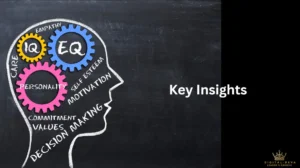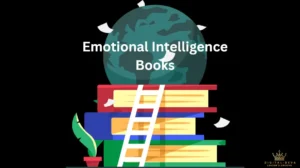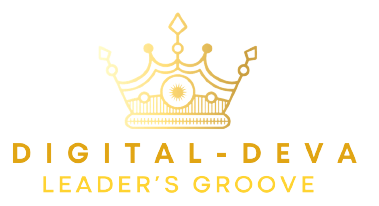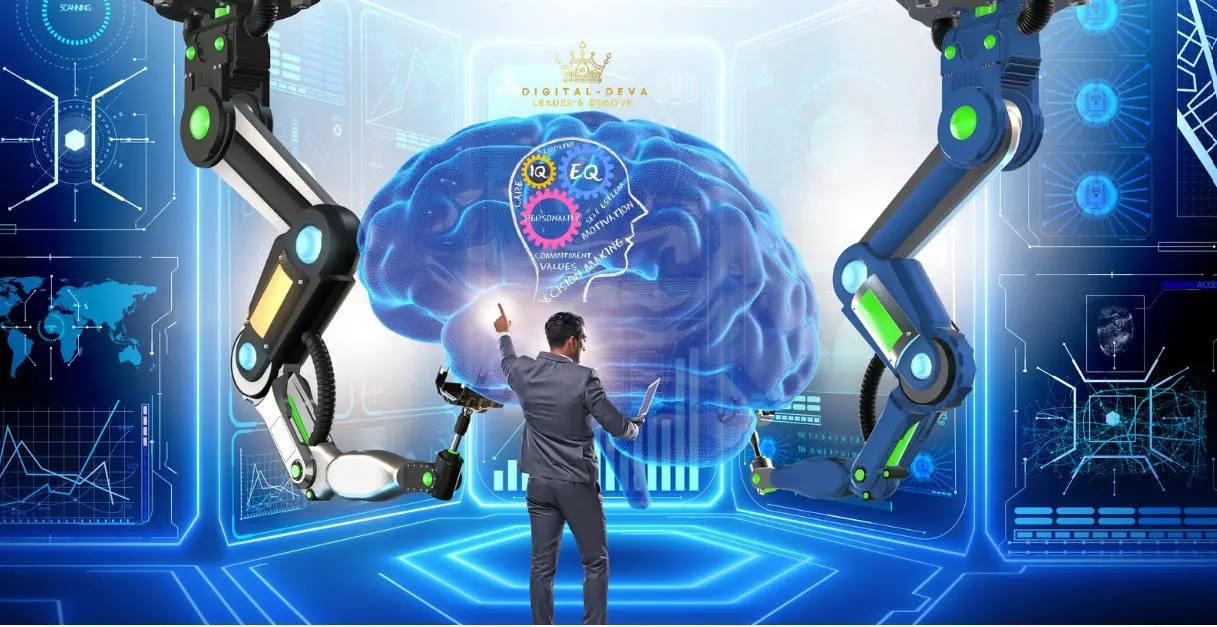In an ever-evolving world, success isn’t just about IQ or technical expertise; it’s about understanding and managing emotions effectively. This is where EQ, also known as emotional quotient or emotional intelligence, comes into play. We’re delving deeply into the world of emotions to understand the enormous effects that emotional intelligence has on both personal and professional life.
But first, let’s talk about a crucial problem: although if EI is regarded as a game-changer, many people still don’t understand it. Numerous people who are interested in improving themselves and their relationships have questions like “What is emotional intelligence?” and “Why does it matter?” running through their heads. Fear not; this article strives to demystify EI by providing not just solutions but also useful information which help you to master your emotional intelligence like a pro.
The Digital Deva team has carefully selected and researched the information in this article. They have done this by looking at current studies, real-world examples, and their own knowledge.
What is Emotional Intelligence ?
How crucial is it for professionals to constantly improve their emotional intelligence abilities in today’s fast-paced and diversified work environments? What actions do you do to maintain your emotional intelligence?
By responding to these questions, you may be inspired to consider your own experiences and add to a rich conversation on the significance of emotional intelligence in the workplace and other contexts.
In order to advance personally and enhance interpersonal connections, it is essential to recognize the primary signs of a lack of emotional intelligence (EI). The following are some typical signs of inadequate emotional intelligence:
10 Key Insights:

Let’s first consider the signs of a person who has trouble identifying his or her own emotions.
1.Has trouble appropriately identifying and labelling his or her own feelings: He / She finds it difficult to read others’ feelings, frequently misreading their body language and facial expressions.
2.Poor Emotional Regulation: Frequently exhibits emotional outbursts or mood swings, particularly while under stress or in the face of criticism. has trouble cooling down after experiencing a strong emotion.
3.Limited Empathy: Lacks the capacity to comprehend and share the thoughts and viewpoints of others tends to be indifferent to other people’s needs and feelings.
4.Ineffective Communication: Has a hard time gently and clearly communicating feelings and requirements, frequently communicates aggressively or passive-aggressively, struggles to provide people active and careful listening.
5.Conflict Management Errors: Frequently engages in disputes and disagreements. Often escalates situations and struggles to find constructive solutions to problems.
6.Difficulty Building Relationships: Has trouble forming and sustaining wholesome connections. May come across as aloof, detached, or uneasy in social situations.
7.Lack of Self-Awareness: Shows little awareness of oneself or introspection. They frequently avoid or deny talking about their own feelings or problems.
8.Poor Decision-Making: Makes emotional-driven, impulsive decisions without taking the long-term effects into account. May struggle to efficiently manage time and set priorities.
9.Resistance to Feedback: Shows signs of being dismissive or defensive in the face of constructive criticism. Struggles to use criticism for personal improvement.
10.Low Motivation: You might not be enthusiastic or motivated to achieve your personal and professional goals. Finds it difficult to remain persistent and concentrated while pursuing goals.
It’s critical to remember that, with practice and self-awareness, EI is a talent that can be honed through time. The first step in improving one’s emotional intelligence and managing stress is to become aware of these signs.
Let’s now examine how to develop emotional intelligence like an expert.

It takes commitment and repetition to develop emotional intelligence like a pro.
A step-by-step manual to mastering emotional intelligence is provided here:
1.Self-Awareness:
-
- Start by becoming aware of your feelings. Think about your emotions and the things that make them come on.
- Keep a journal to record your feelings in different circumstances.
- To better understand your emotions, try mindfulness and meditation.
2.Self-control:
-
- Develop the ability to control your emotional responses. When experiencing intense feelings, pause and breathe before responding.
- To relax during stressful situations, develop healthy coping skills like deep breathing exercises.
- To keep your emotions in check, practice stress management strategies like exercise and relaxation.
3.Empathy:
-
- Work on your ability to empathize with others. Put yourself in their shoes to understand their perspectives.
- Listen actively when others talk, without interrupting or judging.
- Show compassion by helping and supporting those who are in need.
4.Social Skills:
-
- Develop your communication abilities by speaking and listening clearly.
- To manage conflicts productively, develop conflict resolution skills.
- Create a positive social network through valuing and respecting others.
5.Motivation:
-
- Clearly define your objectives and be committed to accomplishing them.
- Discover your innate motivation by becoming aware of your values and interests.
- Make the most of setbacks to advance your knowledge and skills.
6.Continous learning:
-
- Continue learning by taking workshops, classes, and reading material to increase your emotional intelligence.
- To pinpoint areas that need improvement, ask others for their opinions.
- Be in the company of emotionally astute individuals who can act as role models.
7.Practice:
-
- Practice, Practice, Practice by putting your emotional intelligence abilities to use in actual circumstances.
- Every day, practice self-control, empathy, and good communication.
Consider your encounters and the lessons you might draw from them.
Setbacks shouldn’t demotivate you because growth takes time.
Keep in mind that developing EI is a lifelong endeavor. The goal is ongoing improvement, not perfection. You may develop your emotional intelligence and become more skilled at comprehending and controlling both your own emotions and those of others with commitment and practice.
Emotional Intelligence Tests

There are many different EI tests available online and through professional testing companies. These tests can help you to identify your strengths and weaknesses in different areas of EI.
Several of the most well-liked EI tests are listed below:
One of the most popular emotional intelligence assessments is the Mayer-Salovey-Caruso Emotional Intelligence Test (MSCEIT). Four main aspects of EI are measured by this standardized test: self-awareness, self-management, social awareness, and relationship management.
- The Bar-On Emotional Quotient Inventory (EQ-i) is a test that assesses both your general emotional intelligence and your particular strengths and weaknesses in several EI domains.
- The Workplace Emotional Intelligence Profile (WPEIP) is a test that evaluates your emotional intelligence at work.
Emotional Intelligence Books:

Excellent literature on EI are widely available. Here are some of the most well-liked:
- Daniel Goleman’s book Emotional Intelligence: Why It Can Matter More Than IQ: A classic on the subject of emotional intelligence, this book. It gives a thorough overview of EI and its advantages.
- Travis Bradberry and Jean Greaves’ book The EQ Edge: Emotional Intelligence for Personal and Professional Success: This book is a helpful manual for raising your emotional quotient. You can use the exercises and specific advice it offers to hone your emotional intelligence skills.
Warren Bennis and Robert Thomas’ Crucibles of Leadership: How Great Leaders Are Forged: The function of emotional intelligence in leadership is examined in this book. Examples of effective leadership techniques are given.
Emotional Intelligence in the Workplace:

The ability to manage one’s emotions effectively is crucial for success in the profession. People with high EI are better at handling stress, communicating clearly, and forming bonds with coworkers. They are also more likely to be given leadership positions during promotions.
Here are a few strategies for applying emotional intelligence at work:
- Recognize your own feelings: Take a step back when you are experiencing intense emotions and try to figure out what you are feeling and why. You can better control your emotions by doing this.
- Recognize other people’s feelings: Pay attention to your coworkers’ facial expressions and tone of voice. This will enable you to comprehend their feelings and
The ability to manage one’s emotions effectively is crucial for success in the profession. People with high EI are better at handling stress, communicating clearly, and forming bonds with coworkers. They are also more likely to be given leadership positions during promotions.
Effective communication is key. Be concise and straightforward in all of your communication. Stay away from emotive language.
- Offer assistance and support. Be willing to assist your coworkers and lend a helping hand when required.
- Be trustworthy and sincere. Keep your promises and conduct yourself honestly in all of your interactions.
Emotional Intelligence Leadership:

The capacity to lead and inspire people via the application of EI is known as emotional intelligence leadership. Leaders that possess emotional intelligence are able to comprehend and control both their own emotions and those of others. They may also create and keep up good ties with the people on their team.
Leaders that possess EI are better equipped to inspire their teams, establish a productive work environment, and meet organizational objectives. Additionally, they have a higher likelihood of having successful professions.
Here are some of the key characteristics of emotionally intelligent leaders:
- Self-awareness: Leaders who possess EI are conscious of their own emotions, both their positives and negatives. They are also conscious of how their emotions influence both their own and other people’s actions.
- Self-management: Even under pressure, emotionally intelligent leaders are able to control their emotions in a healthy way. They can also maintain their composure and drive in the face of difficulties.
- Social awareness: Leaders who possess EI are able to comprehend the feelings of people and how they are likely to respond to various circumstances. They are also able to understand other people’s perspectives and empathize with them.
- Relationship management: Leaders who have EI are able to create and nurture strong bonds with their team members. They can also settle disputes and foster a productive workplace.
Here are some of the benefits of emotional intelligence leadership:
- Increased employee engagement: Leaders that possess EI are better equipped to inspire and engage their teams. Performance and productivity both increase as a result.
- Better communication: Leaders that possess EI are better equipped to communicate with their teams. This results in less conflict and better teamwork.
- Enhanced customer satisfaction: Leaders that possess EI are better able to comprehend and cater to the demands of their clients. Customer loyalty and satisfaction rise as a result.
- Reduced turnover: Leaders who possess EI are better equipped to foster a supportive work atmosphere and forge close bonds with their team members. As a result, retention rates rise and turnover rates decline.
Emotional Intelligence Activities:

Participate in activities that encourage self-awareness, empathy, and relationship-building to improve your emotional intelligence. These abilities can be developed effectively by journaling, role-playing, and participation in group discussions.
Conclusion:
As we come to the end of our examination of emotional intelligence, it is crucial to consider how this information might influence your path to both personal and professional development. Have you found this article to be insightful in helping you comprehend the importance of emotional intelligence in the modern world? Are you prepared to go along the path of developing your EI and self-awareness?
Think about this Can you think of instances in your life where emotional intelligence development would have produced better results? Can you envision the advantages of developing your self-awareness, self-control, empathy, and relationship management abilities?
We appreciate your opinions and ideas. Have these observations struck a chord with you? Are you prepared to advance in your development of emotional intelligence? As part of our dedication to provide you useful content, we cordially welcome you to share your opinions with us. Please share any experiences, queries, or particular subjects you’d like us to research in the future. Together, we can continue to grow, learn, and succeed in the field of emotional intelligence because your voice matters.
Also, Feel free to check out our one more article on IQ vs EQ
For more insights on Mastering Leadership skills, explore our article on the Top 10 Must have Leadership Skills.




